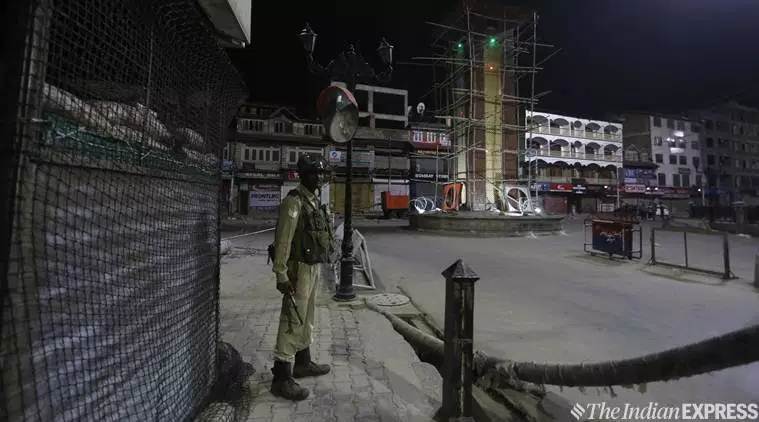
While political disagreement on the Centre’s decision to strip the preferential status of Jammu and Kashmir and bifurcate the state has taken centrestage, experts have raised questions on the legality of the move. The government sought to dilute the special status to Jammu and Kashmir guaranteed under Article 370 of the Constitution without scrapping the provision. It did so without bringing a Constitutional amendment that would require two-thirds majority in the Parliament.
By changing the interpretation of certain terms that find mention in Article 370, Monday’s Presidential order, through Article 367, alters the interpretation of the special provision. However, the President draws the power to issue such a notification from Article 370 itself. Article 370 sub clause 1(d) empowers the President to extend provisions of the Indian Constitution to Jammu and Kashmir.
EXPRESS EDIT/OPINION | Edit: Rupture in history, stitching a future | PB Mehta writes: Blood and betrayal | Ram Madhav writes: Correcting a historic blunder | Manish Sabharwal writes: For Naya Kashmir | Imad Ul Riyaz writes: We are just at the beginning | C. Raja Mohan writes: Possibilities in the Northwest
“Using Article 370 to virtually scrap Article 370 is a bit like using the Constitution to wipe itself out. The provision cannot be used to dilute the provision,” said Alok Prasanna Kumar, senior Resident Fellow and Team Lead, Vidhi Karnataka.
The Presidential order adds a sub-clause to Article 367, replacing the terms “Constituent assembly of Jammu and Kashmir” to mean “legislative Assembly of Jammu and Kashmir” and “government of Jammu and Kashmir” to mean “governor of Jammu and Kashmir acting on the aid and advice of the council of ministers”. The Presidential order also requires the concurrence of the government of the state. However, since Jammu and Kashmir is currently under Governor’s rule, Governor Satya Pal Malik’s concurrence is deemed to be the government’s concurrence.
Read | Article 370 miscarriage of history, separated J&K from India: BJP
Advocate Aman Hingorani, an expert in Kashmir constitutionalism, said that since the Governor is appointed by the President, this concurrence could be held invalid.
“In my understanding, Parliament cannot replace the state legislature with the Governor or the Constituent assembly with the state legislature. In a roundabout way, this is the Centre seeking its own concurrence,” Hingorani said.
The change in interpretation is significant because Article 370(3), the provision that talks about abrogation of Jammu and Kashmir’s special status, says that the President would require the recommendation of the constituent assembly of Jammu and Kashmir to make such a change.
Explained | Sheikh Abdullah, Ayyangar, Sardar Patel: How Article 370 was negotiated, debated
“Even if the words can be replaced, it breaches the spirit of the provision. The Constituent assembly’s recommendation is essentially to include the key stakeholder’s voice while making substantial changes to Article 370. The Centre cannot do so unilaterally,” said senior advocate Raju Ramachandran.
However, former Additional Solicitor General Mohan Parasaran and Harish Salve defended the government’s move. “The President exercising the power under Article 370 itself to remove special privileges to Jammu and Kashmir and clarify the terms of abrogation in fact strengthens the provision,” Parasaran said. “The special privileges are not permanent and were always meant to be temporary. Privileges do not confer rights,” he added.
Salve argued that Article 370 was always deemed a temporary provision and the President did not need the consent of the Jammu and Kashmir constituent assembly to change the provision. “The Constituent Assembly is gone. So how can you consult them?” he said.